I’ve been writing about productivity for fifteen years. In that time, my life has gone through many changes. I’ve gone to university, graduated, lived abroad, built a business, written a book and gotten married. But easily the biggest shift was the birth of my son, last year.
How I’ve thought about productivity has shifted dramatically. Not just in the obvious ways of having less time and needing to coordinate childcare. But also in deeper ways of what goals are really worth focusing on.
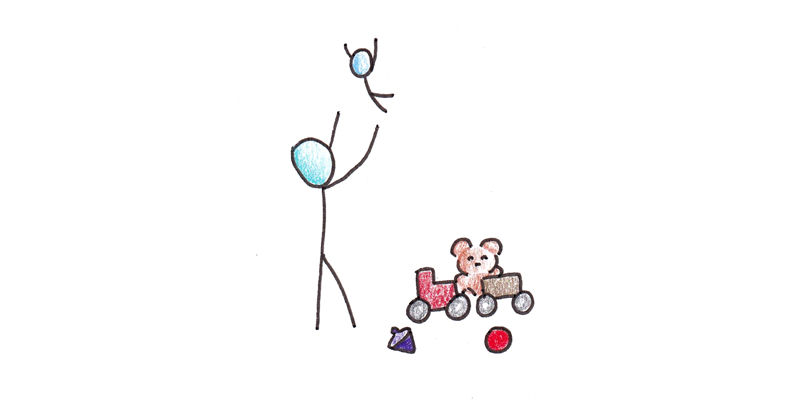
Does Becoming a Parent Make You Wiser, or Just Different?
Becoming a parent is a dramatic shift in perspective. But, not necessarily a privileged one.
Every stage in life creates unique challenges and opportunities. Current challenges feel acute. Current opportunities feel like priorities. As a result, ones belonging to a past stage of life are often discounted as trivial, simply by virtue of hindsight.
For instance, adults have a hard time taking the problems of kids seriously. You can remember being a child. You may even remember intensely negative experiences. But there’s a whole category of childhood upsets that seem silly to adults. I’m not sure that makes them any less real, just less relatable.
I tend to reject the view that having kids “puts your life in perspective” or some other claim for greater wisdom. It’s probably better to say that having kids gives you a different perspective. My goal in this essay, therefore, isn’t to recant my past views on productivity, but simply to share that new perspective.
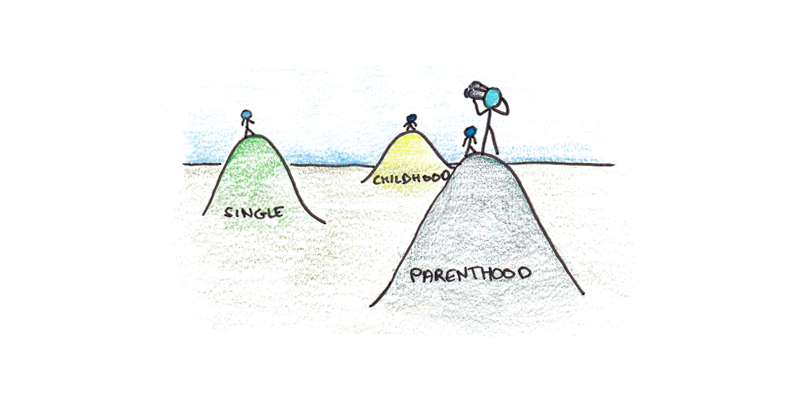
Different Constraints vs Different Values
Plenty about becoming a parent is imaginable in advance. You have less time. You get fewer hours of sleep. You socialize less. (Although, in the past year, it looks like nearly everyone was doing that last one.)
It’s not always easy to envision how life will be under new constraints, but it is at least imaginable. What’s harder to anticipate is the shift in values. You can imagine losing sleep, but it’s hard to mentally simulate what it will be like not to mind so much.
Much of human behavior is driven by deep, instinctual drives—sex, status, safety, and so on. Even goals that don’t explicitly have anything to do these, often get amplified or diminished to the extent that they indirectly help with those goals. Thus, young people just happen to like being cool and adventurous for their own sake, it just coincidentally assists their dating lives.
Caring for your children is one of these deep, instinctual drives. While it doesn’t replace the ones that you had before, its addition ends up tuning many of the other goals that were suitably “downstream” from your original instincts. Career, socializing, hobbies and exercise all take on subtly different shades of meaning as they filter through these new overarching life priorities.
I suspect this is the reason why there’s a tendency for single people to think parents are boring and parents to see single people as superficial. Each has the internal dials for their basic drives tweaked in a way that renders the others’ life choices perplexing.
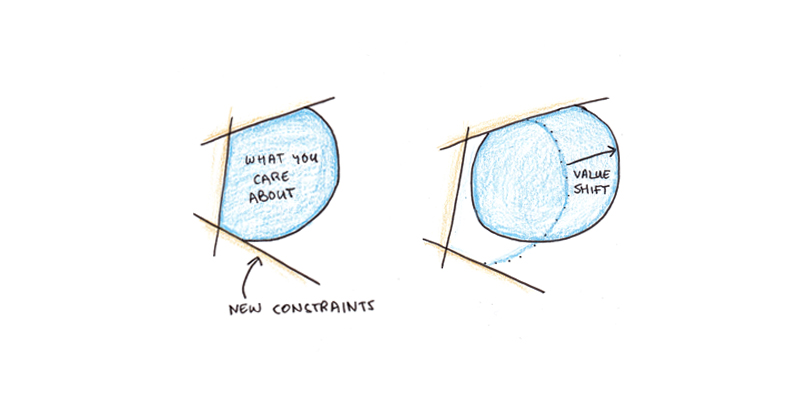
How the Meaning of Productivity Changes
The constraints of parenting make some aspects of work harder and some easier.
The biggest difficulty is simply that overtime is a much costlier strategy when you have kids. In my twenties, when facing a difficult goal, I could always work more as a last resort. These days, my main lever of productivity is carefully choosing what to work on. Since I can’t outwork my competition, I’d better choose my shots wisely.
But being a parent also creates structure. You stop sleeping in, even on weekends. Nights out drinking and extended travel become more difficult, so they interfere less with work. Admittedly, this may be more a feature of my life than others. I’ve always set my own schedule, which is nice, but required more focus to stay productive.
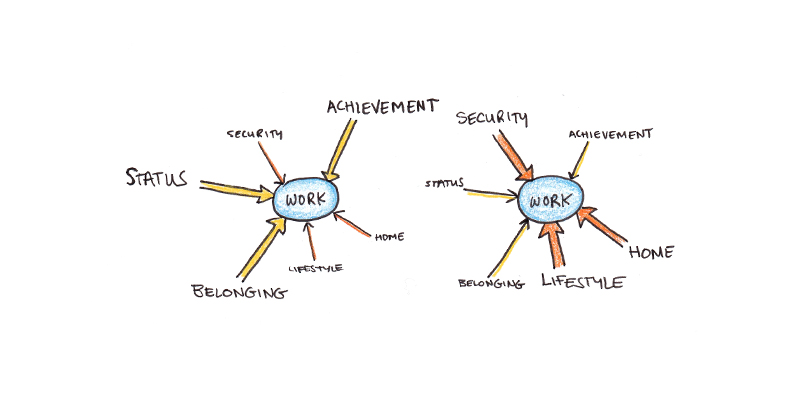
The value shift of parenthood also influences work.
For some, work gets a downgrade in importance. The biggest reason for this is simply time. Kids are a full-time job. Even if you have a supportive partner and childcare, the desire to spend more time with your kids may push you to work less.
For others, work increases in importance. You want to provide for your family, have more living space, invest in their education. Especially if you live in an expensive city, this motivates an ambition that you might have been able to ignore when you were fine sleeping in a small apartment.
Changes in Strategies for Getting Things Done
On a day-to-day level, I’ve found the strategies I use for work have changed dramatically.
I rented office space. Ironically, after over a decade of working from home, it was in the middle of a global pandemic that I started working in an office. While the original justification was a quiet space to record the podcast, it’s helped me get deep work in too.
Planning has become essential. I used to approach my to-do list with greater spontaneity. This was a good strategy in my twenties, and let me shift according to my mood and energy. If I had a good idea for an essay, I wrote. If I was totally stuck, that was a good time to hit the gym. Now, since I need to coordinate childcare, it’s much better to have a stable routine. If I delayed going to the gym by an hour or two before, that rarely caused major problems. Now, if I miss my slot, it can be really hard to make it up later.
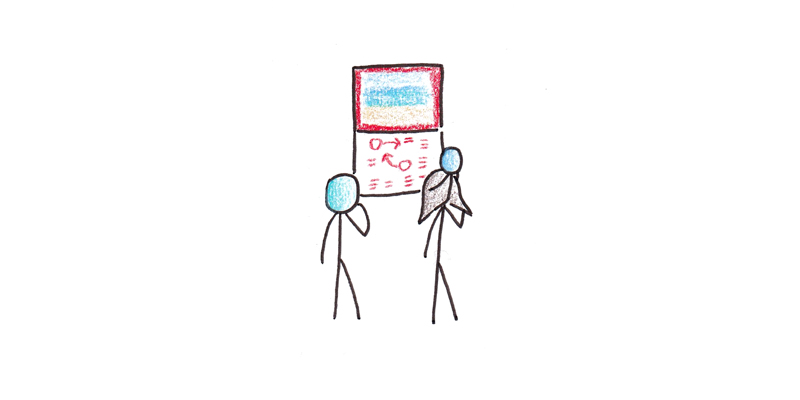
Time is also much more fragmented than it used to be. It’s harder to guarantee long, uninterrupted chunks outside of work. Thus activities that can be picked up for a few minutes and quickly put down again tend to dominate over those that require more depth. Thus, there’s an even greater pull toward checking your phone rather than taking a woodworking class or completing a painting. This greater pull was another reason I felt that going off social media had become necessary.
The biggest change, however, is simply change itself. Children are always changing, and so the way you work around their schedules does as well. Having a son has been the best experience in my life, and I’m sure that it will only become more interesting in the future.


 I'm a Wall Street Journal bestselling author, podcast host, computer programmer and an avid reader. Since 2006, I've published weekly essays on this website to help people like you learn and think better. My work has been featured in The New York Times, BBC, TEDx, Pocket, Business Insider and more. I don't promise I have all the answers, just a place to start.
I'm a Wall Street Journal bestselling author, podcast host, computer programmer and an avid reader. Since 2006, I've published weekly essays on this website to help people like you learn and think better. My work has been featured in The New York Times, BBC, TEDx, Pocket, Business Insider and more. I don't promise I have all the answers, just a place to start.